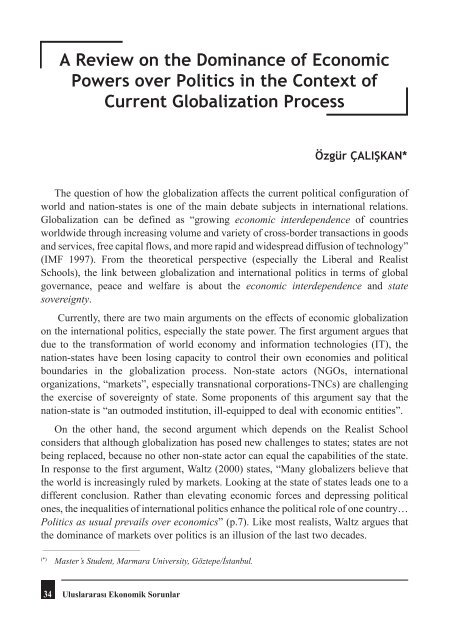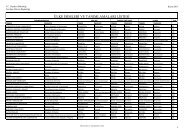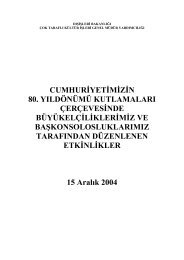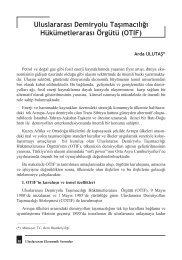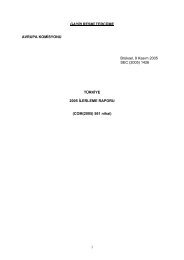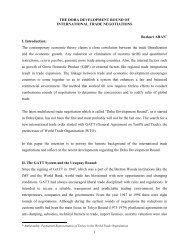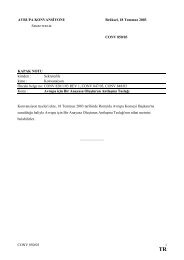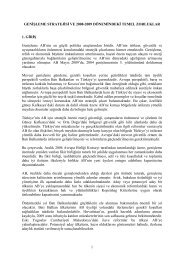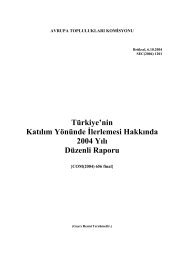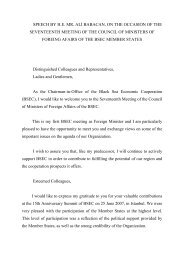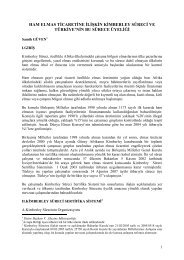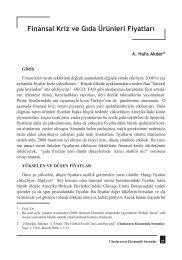ULUSLARARASI EKONOMİK SORUNLAR
ULUSLARARASI EKONOMİK SORUNLAR
ULUSLARARASI EKONOMİK SORUNLAR
Create successful ePaper yourself
Turn your PDF publications into a flip-book with our unique Google optimized e-Paper software.
34<br />
A Review on the Dominance of Economic<br />
Powers over Politics in the Context of<br />
Current Globalization Process<br />
The question of how the globalization affects the current political configuration of<br />
world and nation-states is one of the main debate subjects in international relations.<br />
Globalization can be defined as “growing economic interdependence of countries<br />
worldwide through increasing volume and variety of cross-border transactions in goods<br />
and services, free capital flows, and more rapid and widespread diffusion of technology”<br />
(IMF 1997). From the theoretical perspective (especially the Liberal and Realist<br />
Schools), the link between globalization and international politics in terms of global<br />
governance, peace and welfare is about the economic interdependence and state<br />
sovereignty.<br />
Currently, there are two main arguments on the effects of economic globalization<br />
on the international politics, especially the state power. The first argument argues that<br />
due to the transformation of world economy and information technologies (IT), the<br />
nation-states have been losing capacity to control their own economies and political<br />
boundaries in the globalization process. Non-state actors (NGOs, international<br />
organizations, “markets”, especially transnational corporations-TNCs) are challenging<br />
the exercise of sovereignty of state. Some proponents of this argument say that the<br />
nation-state is “an outmoded institution, ill-equipped to deal with economic entities”.<br />
On the other hand, the second argument which depends on the Realist School<br />
considers that although globalization has posed new challenges to states; states are not<br />
being replaced, because no other non-state actor can equal the capabilities of the state.<br />
In response to the first argument, Waltz (2000) states, “Many globalizers believe that<br />
the world is increasingly ruled by markets. Looking at the state of states leads one to a<br />
different conclusion. Rather than elevating economic forces and depressing political<br />
ones, the inequalities of international politics enhance the political role of one country…<br />
Politics as usual prevails over economics” (p.7). Like most realists, Waltz argues that<br />
the dominance of markets over politics is an illusion of the last two decades.<br />
_____________________________<br />
(*) Master’s Student, Marmara University, Göztepe/İstanbul.<br />
Uluslararası Ekonomik Sorunlar<br />
Özgür ÇALIŞKAN*


